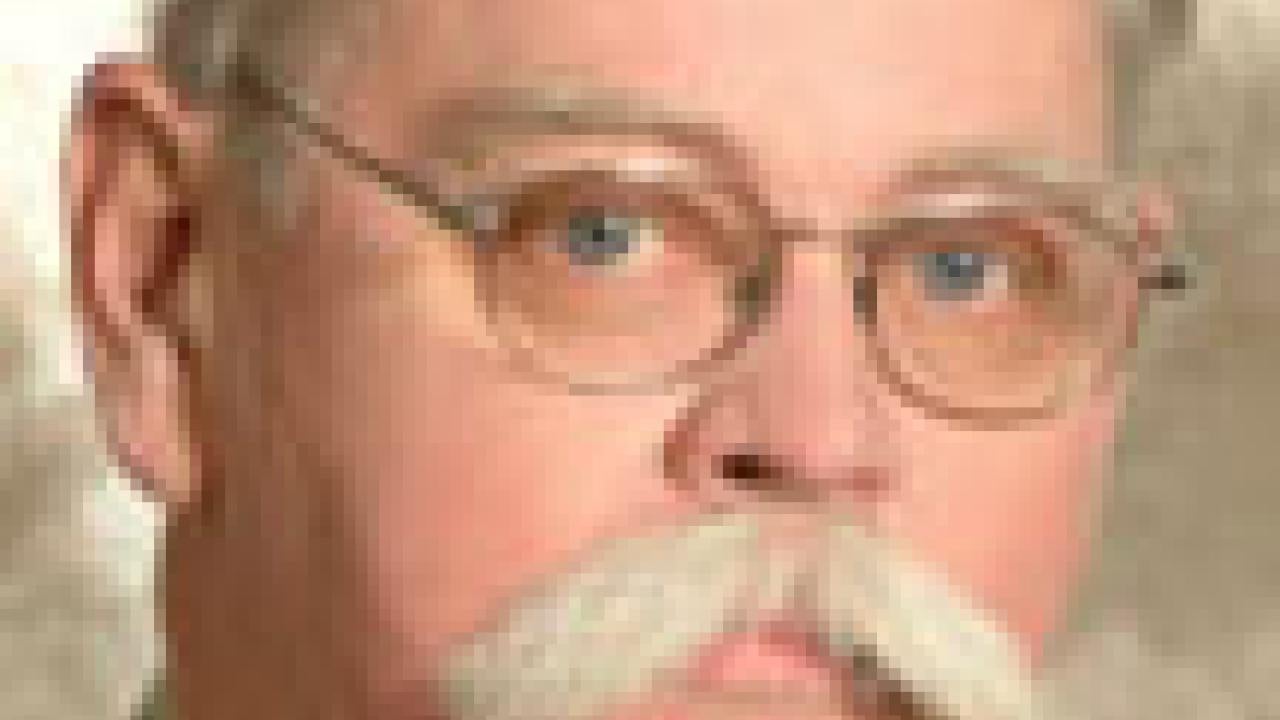Sheriff Ralph Ogden of Yuma County, Ariz., does not argue when author Luis Alberto Urrea says the U.S.-Mexico border "lacks humanity."
Both men are trying to change that: Urrea through his work as a writer, raising public awareness about the sometimes tragic consequences of illegal immigration; and Ogden through his lobbying in Washington, D.C., when he is not picking up the pieces of broken lives in the desert, and notifying the next of kin.
The author and sheriff are scheduled to visit UC Davis later this month to participate in closing events for the Campus Community Book Project — which this year featured Urrea's 2005 Pulitzer Prize finalist The Devil's Highway: A True Story, about the treacherous desert where untold numbers of people sneak into the United States.
Urrea and Ogden are among the panelists for a public discussion the afternoon of Nov. 28, and Urrea is scheduled to deliver a talk that night at the Mondavi Center for the Performing Arts. (For details, see separate story.)
The Devil's Highway recounts how 14 of 26 Mexican men died in the blistering heat during a 2001 border crossing led by a 20-year-old "coyote," or human smuggler.
Ogden led the recovery of the bodies. Never before or since, in his more than 30 years of border law enforcement work, has he seen as large a human toll. Today, six years later, the border region continues to be a place of death, Ogden said.
"These are human beings, they have dreams, they have wishes, they are trying to take care of their families," he said in a telephone interview.
They risk their lives to come to this country because the United States does not provide a "reasonable mechanism" for immigration. "We make it so difficult, with a process that can take years," he said.
As President Bush, Congress and the public struggle to come to consensus on immigration reform, Ogden would like to split the issue in two.
"There's a difference between immigration and border security. … I've been trying to get everybody and his brother to listen," the sheriff said. "As long as you tie the two together, you're never going to pass a bill."
By speeding the immigration process, Ogden said, the United States can hopefully deter people from attempting illegal crossings.
As for illegal immigrants already in this country, he said he does not advocate amnesty per se. But, people who have been in the United States for some time, and who have kept out of trouble, "should move to the front of the line" for legal status, he said.
Urrea, in an interview last month with The California Aggie, acknowledged: "Of course my book has a political view — who doesn't have a political agenda? However, that being said, I feel my calling is oddly more spiritual than political."
Indeed, in discussing his book's single most important point, he told the Aggie: "On the most basic level, I think we need to consider the human cost of what is happening on our border. I felt that if these people were disrespected and cast aside, insulted, used, disparaged and abandoned to die a slow, painful death, the least we could do is bear witness."
Media Resources
Clifton B. Parker, Dateline, (530) 752-1932, cparker@ucdavis.edu
